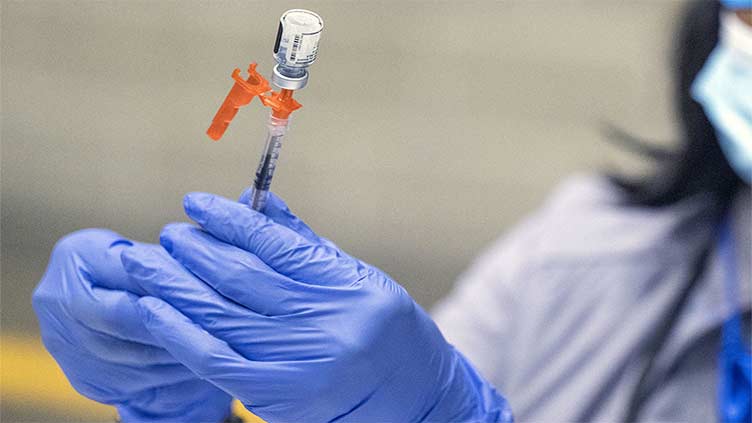Scientists may have figured out how to make vaccines last longer

While attenuated vaccines tend to be the most long-lasting, there are other options
ISLAMABAD, (Online) - Not all vaccines are created equal. Some vaccines can provide immunity for multiple years and sometimes a lifetime. However, other vaccines only last several months.
New research has found a clue about why some cells within the body create long-lasting immunity to vaccines.
Researchers from Monash University’s Central Clinical School in Melbourne, Australia are looking at how the body creates long-lasting cells that can produce antibodies against illnesses.
A statement from the researchers says these findings “could revolutionize how all vaccines could be made to be longer lasting.”
Making vaccines last longer
This new research published this month in the journal Immunity provides a better understanding of how immunity is maintained long-term within the body and experts are hoping it can lead to longer-lasting vaccines.
Dr. Marcus Robinson, Research Fellow at the Immunology Alfred Hospital in Melbourne Australia, and lead author of the study, tells Healthline “the vaccines that last the longest are attenuated vaccines.” An attenuated vaccine uses a weakened form of the pathogen to help create immunity.
It is these vaccines that allow an individual to “get the experience of the infection and the immune response to that infection” but without exposure to the full-strength virus.
While attenuated vaccines tend to be the most long-lasting, there are other options.
Other vaccines use individual proteins from the virus instead of a live virus to help create an immune response. While this is an effective vaccine, the immune response tends to be shorter-lasting in comparison to attenuated vaccines.
By studying the cells within the body that, as a response to vaccines, create an antibody shield, scientists are then able to understand what allows these antibody-producing cells to last as long as they do.
They were able to see evidence of markers that indicate the longevity of an antibody-producing cell.
Robinson says they hope to be able to use this data of longevity markers and combine it with other research to create vaccines that “work better in more people and even in some of the people who have compromised immune systems.”
Robinson also tells Healthline that he hopes this will help us better understand “how we are protected against reinfection and for how long that protection will last.”
Research can improve boosters
Robinson tells Healthline this research is only part of the answer to developing long-lasting vaccines.
Boosters are many times needed for additional protection. These additional boosts of a vaccine create better quality antibodies “in a process called affinity maturation,” said Robinson.
“By combining our work on the survival of cells that secret antibodies with other fantastic science on how antibodies get better as the response progresses will be the way to achieve a no-boost protocol,” he said.
How do vaccines work?
Vaccines are given to people from a young age to help protect against deadly or life-threatening illnesses. When inoculating someone with a vaccine, the body creates antibodies to protect against illnesses.
“Vaccines work by displaying our immune system to only the most essential aspects of a germ,” says Dr. Buddy Creech, director of the Vanderbilt Vaccine Research Program and professor of Infectious Disease at Vanderbilt University Medical Center in Nashville, Tennessee.
Creech commends the research. “Studies like these are great examples of how we are using innovative tools to unlock the minute-by-minute changes that occur after infection and vaccination.”
When showing the body these aspects of the virus or the germ, either the outer covering of a germ or another protein that is made by the germ, antibodies are produced to create immunity and protection against illness.
Antibodies can last anywhere from months to decades, creating a variability of immune response and longevity.
Some diseases do not mutate meaning once you have immunity, you have it for life.
“Measles, polio, and smallpox are very stable germs – they don’t mutate over time and therefore once you get infected, you develop lifelong immunity,” Creech tells Healthline.
However, this is not the case with respiratory infections. “Influenza, RSV, or COVID-19 can reinfect year after year due to subtle changes that occur,” he said.
It is because of these changes that we need boosters or new vaccines every year.
The future of vaccines
Today vaccine boosters are necessary to keep immunity against a many illnesses including the seasonal flu and tetanus. But researchers are always looking to create vaccines that may not always require a booster shot.
“The holy Grail for us in vaccinology is to find the part of the germ that cannot or does not change and target our vaccines there,” said Creech.
One of the key elements to creating a vaccine that is long-lasting is understanding the part of a germ that doesn’t change. After identifying this portion scientists can then create one-time vaccines that last longer and don’t require boosters when the illness mutates.
“The immune system is wonderfully complex and as we unlock all of its intricacies, we hope to answer some of the hardest diseases to prevent, such as HIV, cancer, tuberculosis, and others,” he said.

